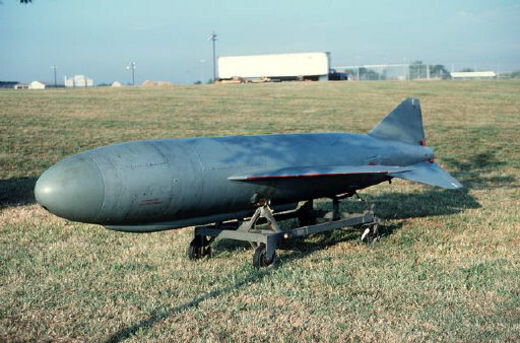hankyoreh
Links to other country sites 다른 나라 사이트 링크
N. Korea’s missile launch heightens tensions

Geopolitical tension on the Korean Peninsula increased significantly when North Korea test-fired several short-range missiles into the waters off its west coast on March 28, hours after it issued a statement denying allegations about a uranium enrichment program and nuclear cooperation with Syria, key sticking points in the six-party negotiations aimed at finding a diplomatic resolution to the nuclear standoff. The North’s actions came one day after it expelled 11 South Korean government officials from an inter-Korean economic cooperation office in the joint industrial complex of the North’s border city of Gaeseong (Kaesong). The “stern demonstrations” by North Korea were seen by experts as an orchestrated scheme to raise the stakes ahead of the April 9 National Assembly election in South Korea and a summit meeting on April 18 between South Korean President Lee Myung-bak and U.S. President George W. Bush. In less than two days, the strain in inter-Korean relations heightened tensions on the Korean Peninsula and among the related nations.
On March 28, a North Korean foreign ministry spokesman said, “If the United States delays the resolution of the nuclear issue by repeatedly trying to persist in its fictions that what does not exist, exists, it will gravely affect the disablement of nuclear facilities, which has so far progressed with difficulty.” In a statement carried by the North’s Korean Central News Agency, the North Korean spokesman said, “Let’s be clear that we did not enrich uranium or engage in nuclear cooperation with other nations. We have never dreamed of doing that and such things will not happen in the future.”
In addition, the North’s foreign ministry spokesman accused the United States of “not implementing its pledges related to lifting its restrictions (against North Korea) within an agreed deadline and causing obstacles in resolving problems by making unfair demands.” The accusation indicates that the North wants the United States to lift sanctions against North Korea under a principle of “action-to-action,” as laid out in the September 19 Joint Declaration of 2005 because significant progress was made in the disablement of the North’s nuclear facilities.
The remarks were also interpreted as being the North’s official response after North Korean Vice Foreign Minister Kim Kye-gwan and Assistant U.S. Secretary of State Christopher Hill met on March 13 in Geneva to try to resolve the impasse between them. Hill is planning to visit South Korea and other Asian nations next week, focusing attention on whether he will again meet with the North Korean Vice Foreign Minister. A senior South Korean government official said, “The remark is not understood to be the North’s final position on the matter as plans for behind-the-scenes talks between the U.S. and North Korea are underway. We need to watch the situation over the next one or two weeks,” the senior South Korean official said.
Prior to the release of the foreign ministry’s statement, North Korea launched several short-range ship-to-ship missiles into waters of the West Sea at around 10:30 a.m. on March 28. The launch is the first since June 27 last year.
Lee Dong-kwan, the South Korean presidential spokesman, said that the missile test “is seen as a routine training. I believe that North Korea does not want a strain in inter-Korean relations.”
However, Kim Seong-bae, a senior researcher at the Institute for National Security Strategy, said, “The actions taken by North Korea today and yesterday were part of an orchestrated manoeuvre. In the short term, the actions were aimed at increasing its negotiating power. But if things don’t go smoothly, the actions may indicate North Korea will stand its ground.”
Please direct questions or comments to [englishhani@hani.co.kr]
Editorial・opinion
![[Column] Park Geun-hye déjà vu in Yoon Suk-yeol [Column] Park Geun-hye déjà vu in Yoon Suk-yeol](https://flexible.img.hani.co.kr/flexible/normal/500/300/imgdb/original/2024/0424/651713945113788.jpg) [Column] Park Geun-hye déjà vu in Yoon Suk-yeol
[Column] Park Geun-hye déjà vu in Yoon Suk-yeol![[Editorial] New weight of N. Korea’s nuclear threats makes dialogue all the more urgent [Editorial] New weight of N. Korea’s nuclear threats makes dialogue all the more urgent](https://flexible.img.hani.co.kr/flexible/normal/500/300/imgdb/original/2024/0424/7317139454662664.jpg) [Editorial] New weight of N. Korea’s nuclear threats makes dialogue all the more urgent
[Editorial] New weight of N. Korea’s nuclear threats makes dialogue all the more urgent- [Guest essay] The real reason Korea’s new right wants to dub Rhee a founding father
- [Column] ‘Choson’: Is it time we start referring to N. Korea in its own terms?
- [Editorial] Japan’s rewriting of history with Korea has gone too far
- [Column] The president’s questionable capacity for dialogue
- [Column] Are chaebol firms just pizza pies for families to divvy up as they please?
- [Column] Has Korea, too, crossed the Rubicon on China?
- [Correspondent’s column] In Japan’s alliance with US, echoes of its past alliances with UK
- [Editorial] Does Yoon think the Korean public is wrong?
Most viewed articles
- 1[Column] Park Geun-hye déjà vu in Yoon Suk-yeol
- 2Why Korea shouldn’t welcome Japan’s newly beefed up defense cooperation with US
- 3[Guest essay] The real reason Korea’s new right wants to dub Rhee a founding father
- 4Will NewJeans end up collateral damage in internal feud at K-pop juggernaut Hybe?
- 5Thursday to mark start of resignations by senior doctors amid standoff with government
- 6N. Korean hackers breached 10 defense contractors in South for months, police say
- 7[Column] ‘Choson’: Is it time we start referring to N. Korea in its own terms?
- 8Kim Jong-un expressed ‘satisfaction’ with nuclear counterstrike drill directed at South
- 9[Editorial] New weight of N. Korea’s nuclear threats makes dialogue all the more urgent
- 10Senior doctors cut hours, prepare to resign as government refuses to scrap medical reform plan